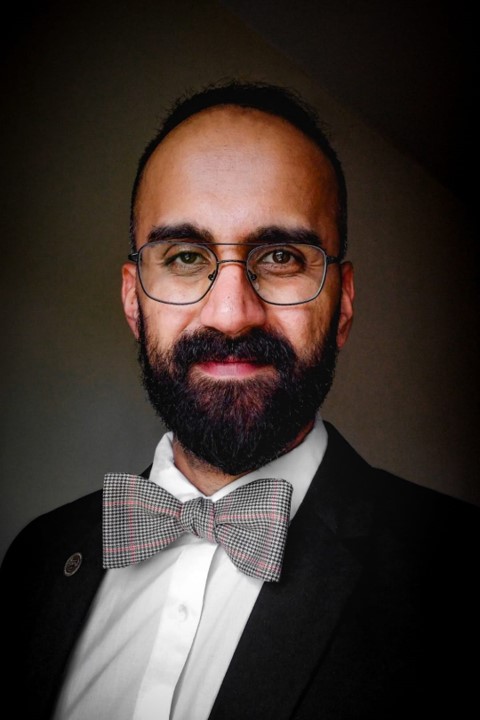 Choosing A University from Multiple Admits
Choosing A University from Multiple Admits
It is that time of the year when scores of students from India and other parts of the world will face a life changing dilemma - the task of having to pick one university from the two or more offers they receive. I have been through the same experience, and I can relate to you all. Before we go into the specifics of what I did, I had to pick a university from Rutgers, SUNY-Buffalo, University of Cincinnati, University of Illinois – Chicago, and the University of California –Riverside for my master’s in Chemical Engineering. Here is what guided me in my decision-making and will hopefully help you as well.
Ranking matters? It depends. What is important to know is that there are many types of university rankings that consider several criteria that may not even be related to what you are going to study. Each ranking has different metrics to look at, for instance – how many students apply/get accepted/rejected and their credentials, the athletics division, campus size, student-faculty ratio, research funding coming into the graduate programs, the number of alumni that give back to the university in the form of donations, etc.
So, unless you know exactly how the rankings that you are considering work, take them with a pinch of salt. Use these numbers as a general guideline but you may not want to let this become the driving force behind your decision. If you are having a difficult time choosing between universities ranked # 53 and # 75, know that it may or may not make a huge difference to you, depending on what is important to you.
Gather information: Of course, you will ask about the fee structure, but it is very important to know as much as you can about the coursework on offer, the job prospects once you graduate (but more on that later), etc. You should also enquire about the possibilities of getting a scholarship or assistantship and the current on-campus job scenario at XYZ university but be aware that it is tough to predict the scope for this based on how it has been or currently is. Things change rapidly.
Some of the information you will gather is to give you an exact idea, and some of it, only a rough idea – for instance, the financial aspect. You will know for a fact how much you will have to spend on academics, but you will only get a rough idea of the living expenses, the funding available for research, student-employment opportunities and payrates to make some $ on campus. Especially for graduate students, after getting an offer of admission, it is okay to reach out to professors/colleges to see if you stand a chance to get a scholarship/ assistantship. Asking other students about a research/teaching assistantship even before you have reached there is helpful too, but I would attach a disclaimer to it, this may not be an accurate representation of how easy/tough it actually is because the students may not be aware of behind-the-scenes updates. Ultimately, it all depends on your abilities and various other factors which may be out of your control.
Networking: The best way to get all the information you want is to talk to current students at the university. If you can, make sure you reach out to someone from the program you are considering. I did, and it helped me immensely. Talk to students, preferably from your own country, so that you can get a student’s perspective as well. They will break it down for you unlike anybody else because they have been through the same process. And you can relate to this better. That said, learn to distinguish between opinions and reality. Know that most of the opinions you receive will be based on individual experiences and observations. Your time on campus might end up being vastly different.
Familiarity: Having trusted and familiar people at your chosen university is a plus when it comes to information gathering, but just because you have heard of a university and your friends/cousins went to this place, or because your aunt/uncle live in the area does not mean it will be the best fit for YOU. What is also important is not to pick a university solely because your best friend is going there. That will surely help, but make sure you evaluate all other major pros and cons before you take this into consideration.
Job Prospects: Go easy on the emphasis on job prospects from day one of the application process. All students eventually want to graduate and get a job but hey, do not stress about it even before you begin. All of us eventually end up somewhere. Depending on the job scenario when you graduate, the prospects might change. Also, your ability to network plays a major role no matter which university you join. So, think about the immediate aspects of your education to make a good decision. You will eventually figure the rest of it out once you join.
Once you decide, do not brood over it. It is tough to choose a university after multiple offers have been made to you, especially after you have spent a lot of time carefully putting the list together but have faith in whatever choice you make, everything is going to turn out fine. Everything happens for a reason. Enjoy the rest of your time with your family and friends and get started with your visa process and packing.
Good luck!
Disclaimer:
This article was sourced by EducationUSA.
This is an unedited article. The views, thoughts, and opinions expressed in the article belong solely to the author and should not be attributed to USIEF or to the author's employer, or any organization, committee, and individual. USIEF is not responsible for any information and fact/figures therein.
